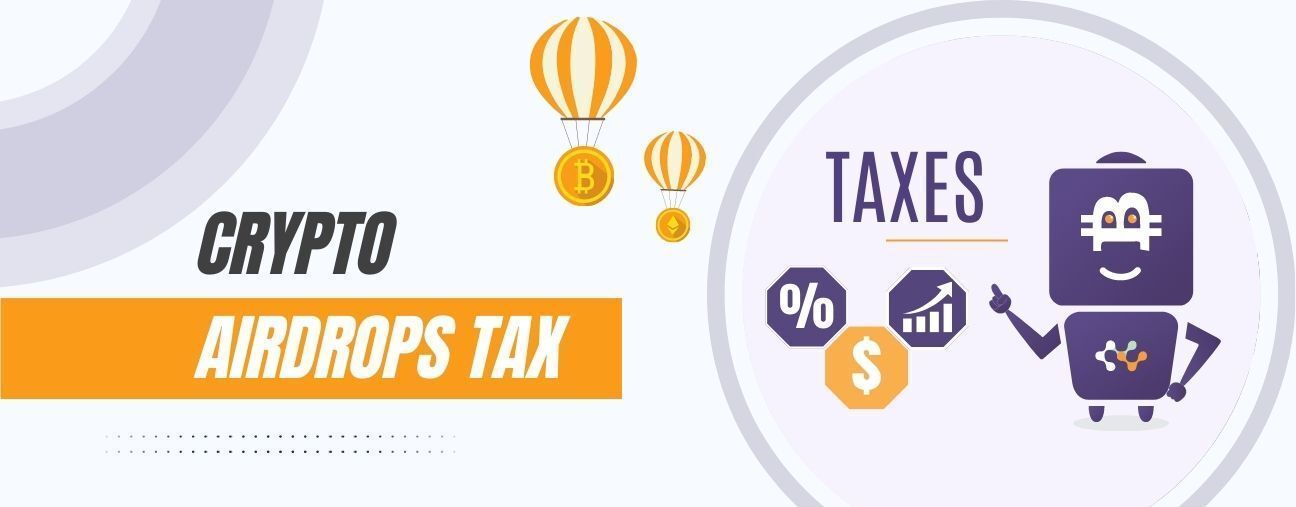Imagine waking up, checking your crypto wallet, and discovering free tokens have magically appeared overnight. Sounds like hitting the jackpot, right? But here’s the twist: those “free” tokens—better known as crypto airdrops—can carry a tax bill that surprises many investors. In this guide, you’ll learn exactly how to handle airdrop taxes in 2025, including the latest IRS guidelines, real-life examples, and simple strategies to ensure you stay compliant. If you’ve ever wondered, “Do I really owe taxes on tokens I never even asked for?”—this article is your essential roadmap. Keep reading!
What Exactly Is a Crypto Airdrop?
A crypto airdrop occurs when a blockchain project distributes free tokens to users, often as a marketing strategy or to reward early adopters. It can happen for various reasons:
- Launching a new protocol or token to spur adoption
- Rewarding existing users for holding a certain coin balance (e.g., an ETH address)
- Promoting a new feature, such as NFT utilities or staking
2025 Trend Spotlight
- Airdrops are expanding beyond simple tokens to include NFTs, layer-2 tokens, and cross-chain bridging rewards—all of which can have distinct tax implications.
Why Are Airdrops Taxed? (Understanding IRS Regulations)
In the USA, the IRS classifies most airdrops as taxable income when you have dominion and control of the tokens. According to the most recent IRS guidelines (including expansions hinted at in late 2024):
- Ordinary Income: The value of your airdropped tokens on the day you first control them must be reported as income.
- Possible Capital Gains Later: When you sell or exchange these tokens, you may owe capital gains or losses based on any price change since you first received them.
Pro Tip: Keep timestamped screenshots or wallet transaction records to prove exactly when you gained control of the airdrop. This will simplify determining your cost basis and potential capital gains down the road.
When Do You Recognize Airdrop Income?
This is one of the biggest pain points for crypto investors. Under IRS rules:
- Date of Receipt: Typically, the moment the tokens show up in your wallet and you can trade, sell, or move them at will.
- Zero FMV (Fair Market Value): If your airdrop has no market at the time (i.e., you cannot trade it on any exchange), you generally wait until a market exists. Once it’s tradable, that is typically your recognized income date.
2024–2025 Updates
- The IRS has begun to track emerging tokens more rigorously. If your airdrop eventually lists on any decentralized exchange (DEX), you may need to note that new trading date as your reportable event.
Are You Taxed Twice?
It might feel like it, but no. You pay ordinary income tax on the airdrop’s value when received. If you later sell:
- Capital Gain (or Loss) = (Sale Price) – (Original Cost Basis).
- Original Cost Basis = The value you reported as ordinary income at the time of receipt.
Step-by-Step Example (Cost Basis Calculation)
| Step | Action | Hypothetical Amount | Tax Implication |
|---|---|---|---|
| 1. Airdrop Received | 100 tokens appear in your wallet | $10 each = $1,000 total | $1,000 reported as ordinary income for that tax year. |
| 2. Price Appreciation | Price rises to $15 per token | $1,500 total | No taxes yet. Gains aren’t realized until you sell or dispose. |
| 3. You Sell at $15 Each | Full disposal | $1,500 total | Capital gains = $1,500 – $1,000 (basis) = $500. You pay CG tax on $500. |
This table demonstrates that you don’t pay tax on the $1,000 again—only on the extra $500 of growth.
How Does Reporting Taxes On Airdrops Work?

You report any gains or losses from the sale or exchange of an airdropped token in the same way as you would for any other type of token. However, you are not taxed twice on the same income.
Airdrop rewards, as mentioned before, are taxed like any other income according to their fair market value at the time of receipt. If you sell them later, you will only need to pay capital gains or losses taxes based on how the price of your tokens has changed since you got them.
General Issues With Airdrops
While airdrops may be an excellent method to reward cryptocurrency investors, they frequently come with their own tax issues. Here are three of the most prevalent ones.
- Your Airdropped Tokens’ Value Has Dropped Considerably.
Note that you will have to pay income taxes on the basis of your tokens’ fair market value at the time they were airdropped to you. Nevertheless, this can become a problem if the token’s price falls precipitously. If this happens, it’s possible that you might end up owing more in taxes than you currently have available.
Use a crypto tax calculator to help you avoid underpaying or overpaying your taxes throughout the year.
- You Received Airdrops that You Did Not Want.
Some projects will airdrop tokens to investors without them asking for them.
In most situations, these coins have little worth. You should record the market value of these tokens if there is one. Typically, this will be just a few dollars in earnings.
- You Lost Your Money In An Airdrop Scam.
Some developers create fraudulent airdrops in order to scam people who are new to investing in cryptocurrencies. They might pretend the airdrop is from a legitimate project, then ask for the person’s private key so they can steal any assets that are in their wallet.
Unfortunately, these sorts of ‘accidental losses’ are generally not deductible from your income taxes.
How Will The IRS Know If You Got An Airdrop?
Some investors choose not to disclose airdrop bonuses, thinking the IRS will be unable to trace them.
However, if you don’t report your airdrop rewards, it would be considered as tax evasion and might result in fines and penalties.
To link illegal wallets to investors, the IRS hires third-party vendors such as Chainalysis. If you don’t disclose your revenue, you’ll be more likely to get audited and imprisoned for not paying taxes on cryptocurrency.
Addressing Advanced Scenarios
- NFT Airdrops
- Typically subject to ordinary income tax upon receiving the NFT.
- The challenge is establishing market value if it’s not actively traded.
- If you later sell or trade the NFT, you calculate capital gain or loss.
- Claim-Based Airdrops
- Some projects require you to connect a wallet and pay a gas fee to claim.
- Potentially, your tax liability arises once you’ve claimed and truly have full control.
- Keep records of gas fees, as they may factor into cost basis adjustments.
- Unwanted Airdrops
- Even if you never requested the tokens, the IRS may view them as taxable income once they’re in your wallet.
- If the tokens have no real value, you may not owe anything. But if they spike in price, that’s where the tax event triggers.
- Scam Airdrops
- Lost or stolen tokens generally fall under “casualty losses,” which are often non-deductible.
- Consult a tax professional if you suspect scam involvement.
Case Study: 2025 Student Investor
Meet Alex (name changed), a college student dabbling in crypto. In March 2025:
- Receives 200 “EDUChain” tokens at $2 each = $400 in ordinary income.
- Files this on Schedule 1 of Form 1040 under “Other Income.”
- In August 2025, the token spikes to $5. Alex sells for $1,000 total.
- Alex’s capital gain = $1,000 – $400 = $600 (taxed at either short-term or long-term rates, depending on holding period).
This straightforward scenario clarifies how a student-friendly approach to taxes might play out.
Potential Strategies to Manage Airdrop Taxes
- Track Every Airdrop: Use a crypto tax software or spreadsheet to record date, FMV, and eventual sale price.
- Separate Wallets: Keep a dedicated “airdrop wallet” to streamline record-keeping.
- Charitable Contributions: If you decide to donate tokens to a qualified charity, you might reduce your tax burden (subject to donation rules).
- Tax-Advantaged Accounts: If possible, hold certain crypto in an IRA or other tax-deferred account—though this can be complex and typically requires specialized custodians.
Filing and Reporting in 2025
- Form 1040, Schedule 1: Report airdrop income under “Other Income” with a label like “Crypto airdrop.”
- Form 8949 and Schedule D: Use these if you dispose of your airdrop tokens and need to report capital gains or losses.
- Potential New Forms: The IRS is rumored to be rolling out more targeted crypto tax forms in 2025. Stay updated by following the official IRS Virtual Currencies Page.
Latest Trends & Considerations for 2024–2025
- Increased Enforcement: The IRS and third-party blockchain analytics firms (e.g., Chainalysis) are ramping up wallet tracing.
- Layer-2 Airdrops: Projects like Arbitrum or Optimism have done airdrops; future expansions or forks might trigger additional events.
- Possible Additional Legislative Action: Federal proposals could specifically address reporting thresholds, updated 1099 forms, and the classification of certain tokens.
Frequently Overlooked Tips
- Beware of Overlooked Fees: If you pay network or gas fees to claim the airdrop, track them carefully.
- Watch the Holding Period: Distinguish short-term vs. long-term capital gains if you hold your tokens for over one year.
- Proactive Record-Keeping: Snap wallet screenshots, keep logs of transaction IDs, and store them in a secure folder (cloud or encrypted drive).
- Don’t Hide Airdrops: Underreporting is tax evasion. The IRS is increasingly sophisticated in linking wallet addresses to identities.
Avoiding Unexpected Penalties
Given the rapid changes in crypto tax enforcement and new tokens popping up each month, compliance can feel daunting. Here’s how to stay safe:
- Use Reputable Tax Tools: Integrate your wallet(s) with recognized software that can parse out airdrops.
- Consult a Tax Pro: For complex or high-value airdrops, a crypto-savvy CPA can help interpret new rules.
- Stay Updated: Set up alerts for new IRS announcements on virtual currency. The rules can shift quickly.
Crypto airdrops might feel like free money, but the IRS rarely treats them as freebies. From the moment you control those tokens, you’re likely facing a taxable event. Whether you’re a student investor, a seasoned trader, or just airdropped tokens out of the blue, it’s crucial to keep records, understand reporting requirements, and stay current with the latest guidance. By following the steps here— and using a combination of accurate record-keeping, reputable tax software, and professional advice—you can navigate airdrop taxes without losing sleep or risking penalties.
Ready to simplify your airdrop reporting? Explore user-friendly platforms like IRS Virtual Currencies Page for official updates or consult with a qualified crypto tax professional today!
Disclaimer: The information presented on this website is intended for general informational purposes only and should not be interpreted as professional advice from CRPTM. CRPTM does not offer financial advice. We strongly recommend seeking independent legal, financial, tax, or other professional advice to determine how the information provided on this website applies to your specific circumstances. CRPTM assumes no liability for any loss incurred, whether due to negligence or otherwise, resulting from the use of or reliance on the information contained herein.




